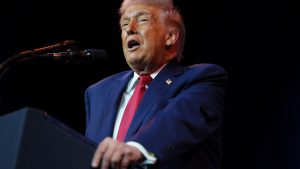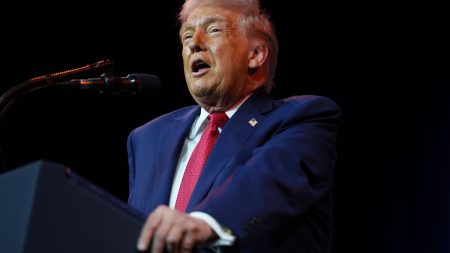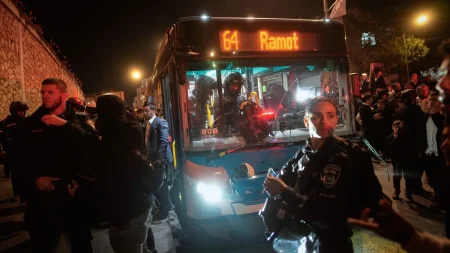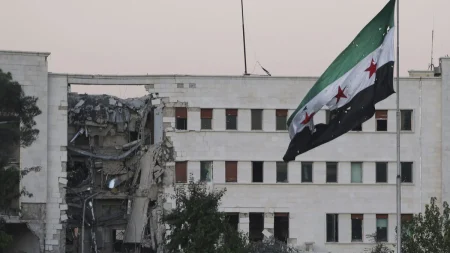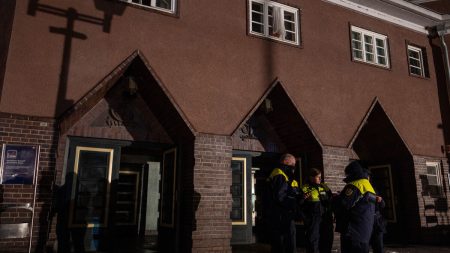The dramatic arrest of South Korea’s deposed President Yoon Suk-yeol marks a critical juncture in the nation’s ongoing political turmoil. Yoon’s detention, following a protracted police operation at his Seoul residence, follows weeks of escalating tension and uncertainty that began with his controversial declaration of a state of emergency. This act, ostensibly aimed at combating perceived communist threats and parliamentary obstruction, ultimately backfired, leading to his impeachment and removal from office. The swiftness and decisiveness of parliament’s response underscored the depth of opposition to Yoon’s actions and the fragility of his hold on power. The arrest solidifies his fall from grace and sets the stage for a potentially lengthy and complex legal battle.
Yoon’s declaration of a state of emergency on December 3rd, citing the need to defend the country from communist forces and overcome parliamentary gridlock, proved to be a fatal miscalculation. The claim of communist infiltration, seemingly lacking substantial evidence, was met with widespread skepticism and condemnation, both domestically and internationally. Critics viewed the move as a thinly veiled attempt to suppress political dissent and consolidate his own authority. The opposition, already frustrated by what they perceived as Yoon’s increasingly authoritarian tendencies, rallied against the declaration, effectively paralyzing the government and further exacerbating the political crisis. The subsequent parliamentary vote to repeal the emergency measures underscored the lack of support for Yoon’s actions and paved the way for his eventual impeachment.
The National Assembly’s decision to impeach and remove Yoon from office, just days after his ill-fated declaration of emergency, reflected the growing dissatisfaction with his leadership and the severity of the constitutional crisis he had precipitated. The impeachment process moved with remarkable speed, signaling the urgency with which lawmakers sought to address the escalating political instability. The vote, a resounding repudiation of Yoon’s actions, effectively stripped him of his presidential powers and privileges, confining him to his residence while awaiting further legal proceedings. This rapid and decisive action by the legislature underscored the strength of democratic institutions in South Korea and their willingness to hold even the highest office accountable.
The arrest of Yoon Suk-yeol, following his impeachment and removal from office, signifies the gravity of the allegations against him and the determination of the authorities to pursue justice. While the specific charges remain unclear, they likely stem from his declaration of a state of emergency and the subsequent political fallout. The investigation into Yoon’s actions will undoubtedly be complex and politically charged, with significant implications for the future of South Korean politics. The arrest itself represents a watershed moment, marking the first time a former South Korean president has been detained on such charges. This unprecedented event will undoubtedly shape public discourse and influence the ongoing debate about the balance of power within the government.
The political turmoil surrounding Yoon’s impeachment and arrest has exposed deep divisions within South Korean society and raised concerns about the stability of the country’s democratic institutions. The rapid escalation of events, from the declaration of emergency to the impeachment and subsequent arrest, has left many citizens feeling anxious and uncertain about the future. The political polarization and erosion of trust in government institutions, exacerbated by the crisis, pose a significant challenge to the country’s long-term stability. The upcoming legal proceedings against Yoon will be closely watched, both domestically and internationally, as they will not only determine his fate but also shape the future trajectory of South Korean politics.
The arrest of Yoon Suk-yeol marks a pivotal moment in South Korean history, underscoring the fragility of democratic institutions and the importance of upholding the rule of law. The events leading up to his detention, from the controversial declaration of emergency to his impeachment and removal from office, have tested the resilience of South Korea’s democratic system. The ongoing legal proceedings against Yoon will have far-reaching consequences, not only for his own political future but also for the broader political landscape of the country. The outcome of these proceedings will undoubtedly shape the future of South Korean politics and serve as a crucial test of the nation’s commitment to democratic principles. The world will be watching as South Korea navigates this challenging period and seeks to restore stability and confidence in its government.


